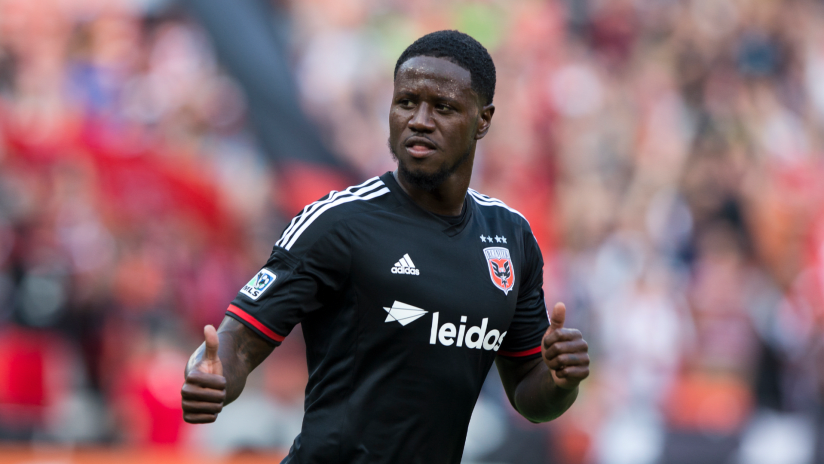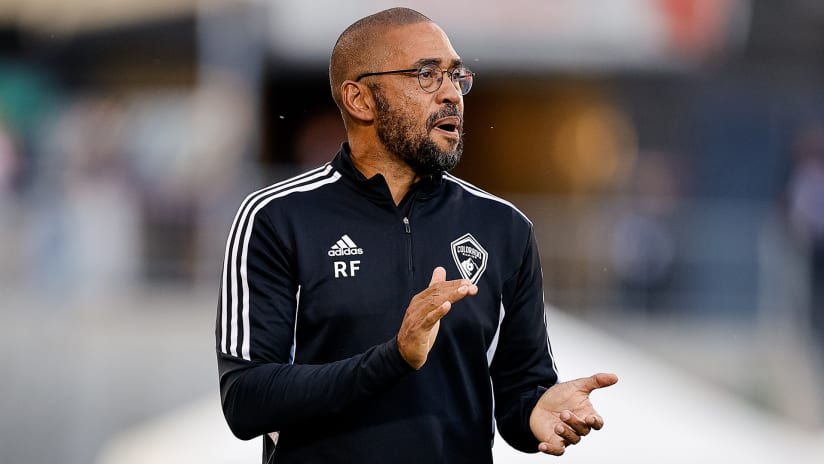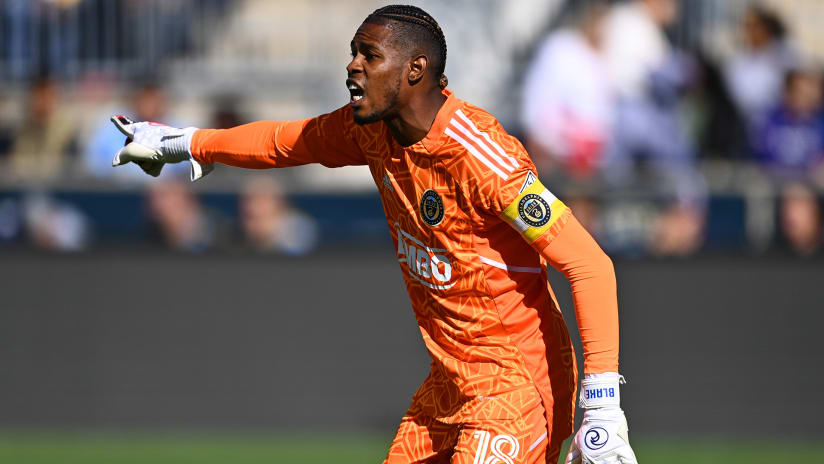Before Gio Reyna, before Christian Pulisic or Weston McKennie, even before Freddy Adu, there was Eddie Johnson.
The striker became one of the youngest professional players in US soccer history when he signed a Project-40 (now Generation adidas) contract at 16 and was drafted in the second round of the 2001 MLS SuperDraft by the Dallas Burn (now FC Dallas). He then blossomed into an MLS star with Dallas and Kansas City and prolific scorer for the US men’s national team, making a big-money move to Fulham FC in 2007, the first stop in a four-year stint in Europe, before a second successful stint in MLS with Seattle Sounders FC and D.C. United.
Johnson was the vanguard of a vital evolution in player development, bypassing collegiate soccer to go straight to the pros. More than that, as a Black player who rose from a humble upbringing in Bunnell, Florida, he also stands out as one of the first and most prominent 21st-century success stories in US soccer’s efforts to outgrow perceptions of a sport for well-to-do kids in predominantly white suburbs.
Lessons from that journey – undoubtedly a long, winding and occasionally contentious path – have driven his second career as a sought-after skills trainer and youth coach in Orlando.
“All the experiences that I had, and I go back and I look at, from club to ODP to youth national team, signing at 16 and then going on and having a 15-year career – what does that look like? What are the different levels and the different challenges that I had to have in order for me to keep progressing and getting better?” Johnson explained to MLSsoccer.com.
“So I went back in, and I just kind of tried to replicate my path and the experiences I had along the way. But also be mindful that this younger generation right now, with all of the resources that they're having that we didn't have, that they're better soccer players than we [were] from a technique standpoint, a soccer IQ standpoint, because of all the supplemental training, additional training that the kids are doing outside of their club environment.”
Giving back to the game
Johnson was speaking from Weston, Florida, where he’d just coached a team of 2013-born kids through an undefeated run at a holiday weekend tournament. After working strictly as a technical trainer with individuals and small groups for several years, he’s now opened a new chapter in his coaching evolution, organizing teams under his EJE7 brand to compete in a few tournaments a year.
“I feel like we emphasize on winning too much at the younger ages and that players are defined on how good they are if they're winning. And that shouldn't be the focus,” he explained. “The focus should be on developing them from the ground up. That's mainly what our focus is.
“We use the tournament for more developing tools. We're not a team by any means. But we put together teams that go play these other teams that are playing week in and week out, that are in either pre-ECNL or these different types of academies and just kind of say, ‘Hey, this is what our philosophy is, this is what we can be.’”
Last weekend’s event was a 7-on-7 format; next month he’ll take the same group of 9- and 10-year-olds to a 9v9 event in Arizona. Johnson’s passion for this next chapter in his life is evident as he describes his rationale.
“A lot of teams in the US,” he continued, “I feel like they rush kids at the younger ages into the bigger formats too early. And then a lot of those attributes and skill sets that you're trying to develop are never developed, because it is more trying to rush things instead of focusing on the areas that they need to be focused on, before they progress to the bigger field. So for me, the way these kids are growing, these 2013s, I'm really, really happy. But now I see that they need a new challenge.”
His big-picture view: While significant progress is being made, particularly on the pro pathways being crafted via big academy investments by MLS, USL and NWSL clubs, the US and Canada have a ways to go towards matching the intense proving grounds he saw on the other side of the Atlantic.
“When I was a teenager, being in a professional environment, and from teenager to pro in a professional environment, in order for me to have kept growing, right, those environments needed to be more real and authentic,” he recalled.
“It did something to Eddie Johnson's confidence and ego, when someone put a kid around me that was better than me, or just as good. Now I knew that I wasn’t promised to play, and I knew I had to work my butt off twice as hard because someone can potentially take my spot at any moment. And I feel like we still need to do a better job at that if we still want to see these kids grow and get better in this country. And so that's why I'm more involved in the grassroots areas.”
The need for diversity
He points to the achievements of his former teammate Ezra Hendrickson, now head coach of Chicago Fire FC, and Colorado Rapids boss Robin Fraser, who he faced in MLS matches in the ‘00s, as encouraging signposts for Black coaches at all levels. But he thinks there’s a ways to go in reaching a full understanding of what growing diversity really means for North American soccer.
“Being a former player of color and a mentor of color now, we’ve got to start changing that whole narrative of, ‘soccer in America is a suburban sport.’ Because when you first say suburban sport, you think of white kid, well-off, entitled, parents are financially in a good position, and can pay to put them on top teams,” said Johnson.
“So then when you get a coach of color, that has to work for everything all their life, had to earn everything all their life, and then their way of coaching is completely different than the average kid that's been given everything all their life. There's this misperception of, the coach is too hard, or the coach is putting my kid down, or the coach is insulting my kid. Because they mistake the coach of color’s passion… how they had to work towards everything. They try and create their environment that are based upon their life lessons and their experiences of what it really takes to be successful.”
Johnson believes his current pupils are future stars in the making and aspires to someday work at the youth national teams level to help rising prospects like them make the most of their talents.
“The only way the sport’s going continue to grow, and I always keep preaching it, is that we need more former players coming back and working with the grassroots,” he said. “I feel like those are the most important ages, between 6 and 12, where you can get these kids in good environments and develop them, and not make the focus and the emphasis become on winning and competing, to more player development and developing these attributes that are going to allow them to develop and grow.
“We've got to do better. And when I say 'we,' I’m including myself – we've got to do better by these kids,” he added, “to put them in a position to be able to do great things later, or be great players later. Because we have all the resources. We have everything here. We have the best athletes here.”















